Plenary Lectures (To be Updated)

Prof. Alessandro Astolfi, Imperial College London, U.K., IEEE Fellow, Member of the Academy of Europe
Alessandro Astolfi (IEEE Fellow) graduated in electronic engineering from the University of Rome in 1991. In 1992 he joined ETH-Zurich where he obtained a M.Sc. in Information Theory in 1995 and the Ph.D. degree with Medal of Honor in 1995 with a thesis on discontinuous stabilization of nonholonomic systems. In 1996 he was awarded a Ph.D. from the University of Rome “La Sapienza” for his work on nonlinear robust control. Since 1996 he has been with the Electrical and Electronic Engineering Department of Imperial College London, London (UK), where he is currently Professor of Nonlinear Control Theory and College Consul for the Faculty of Engineering and Business School. From 2010 to 2022 he served as Head of the Control and Power Group at Imperial College London and from 1998 to 2003 he was an Associate Professor at the Dept. of Electronics and Information of the Politecnico of Milano. Since 2005 he has also been a Professor at Dipartimento di Ingegneria Civile e Ingegneria Informatica, University of Rome Tor Vergata. His research interests are focused on mathematical control theory and control applications, with special emphasis for the problems of discontinuous stabilization, robust and adaptive control, observer design and model reduction. He is the author of over 180 journal papers; 30 book chapters; and over 270 papers in refereed conference proceedings. He is the author (with D. Karagiannis and R. Ortega) of the monograph “Nonlinear and Adaptive Control with Applications” (Springer-Verlag). He is the recipient of the IEEE CSS A. Ruberti Young Researcher Prize (2007), the IEEE RAS Googol Best New Application Paper Award (2009), the IEEE CSS George S. Axelby Outstanding Paper Award (2012), the Automatica Best Paper Award (2017), and the IEEE Trans, on Control Systems Technology Best Paper Award (2023). He is a “Distinguished Member” of the IEEE CSS, IEEE Fellow, IFAC Fellow and Member of the Academia Europaea. He served as Associate Editor for Automatica, Systems and Control Letters, the IEEE Trans. on Automatic Control, the International Journal of Control, the European Journal of Control and the Journal of the Franklin Institute; as Area Editor for the Int. J. of Adaptive Control and Signal Processing; as Senior Editor for the IEEE Trans. on Automatic Control; and as Editor-in Chief for the European Journal of Control. He is currently Editor-in-Chief of the IEEE Trans. on Automatic Control (2018–). He served as Chair of the IEEE CSS Conference Editorial Board (2010-2017) and in the IPC of several international conferences. He has served as Chair of the IEEE CSS Antonio Ruberti Young Researcher Prize (2015-2021); he is Vice Chair of the IFAC Technical Board (2020-2023) and he has been/is a Member of the IEEE Fellow Committee (2016), (2019-2022). He is currently a member of the IEEE PSPB Strategic Planning Committee and of the IEEE Fellow Nomination & Appointment Committee.
Title: Geometry, Coordinates, Invariance and Energy in the Control of Unmanned Systems
Abstract: Geometry, coordinates, invariance and energy play a key role in the control of unmanned systems. We illustrate their role in the (adaptive) stabilization of underwater vehicles, surface vessels, tractor-trailer systems, unmanned aircraft and magnetically controlled satellites.

Prof. Marios Polycarpou, University of Cyprus, IEEE Fellow, Member of the Academy of Europe
Marios Polycarpou is a Professor of Electrical and Computer Engineering and the Founder of the KIOS Research and Innovation Center of Excellence at the University of Cyprus. He is also a Member of the Cyprus Academy of Sciences, Letters, and Arts, an Honorary Professor of Imperial College London, and a Member of Academia Europaea (The Academy of Europe). He received the B.A degree in Computer Science and the B.Sc. in Electrical Engineering, both from Rice University, USA in 1987, and the M.S. and Ph.D. degrees in Electrical Engineering from the University of Southern California, in 1989 and 1992 respectively. His teaching and research interests are in intelligent systems and networks, adaptive and learning control systems, fault diagnosis, machine learning, and critical infrastructure systems. Prof. Polycarpou is the recipient of the 2023 IEEE Frank Rosenblatt Technical Field Award and the 2016 IEEE Neural Networks Pioneer Award. He is a Fellow of IEEE and IFAC. He served as the President of the IEEE Computational Intelligence Society (2012-2013), as the President of the European Control Association (2017-2019), and as the Editor-in-Chief of the IEEE Transactions on Neural Networks and Learning Systems (2004-2010). Prof. Polycarpou currently serves on the Editorial Boards of the Proceedings of the IEEE and the Annual Reviews in Control. His research work has been funded by several agencies and industry in Europe and the United States, including the prestigious European Research Council (ERC) Advanced Grant, the ERC Synergy Grant and the EU-Widening Teaming program.
Title: Connecting AI to the Cyber-Physical World: Risks, Opportunities and Challenges
Abstract: The development of cyber-physical systems with multiple sensor/actuator components and feedback loops has given rise to advanced automation applications, including energy and power, intelligent transportation, water systems, manufacturing, etc. Traditionally, feedback control has focused on enhancing the tracking and robustness performance of the closed-loop system; however, as cyber-physical systems become more complex and interconnected and more interdependent, there is a need to refocus our attention not only on performance but also on the resilience of cyber-physical systems. In situations of unexpected events and faults, artificial intelligence and machine learning can play a key role in improving the fault tolerance of cyber-physical systems and preventing serious degradation or a catastrophic system failure. The goal of this presentation is to provide insight into the design and analysis of intelligent monitoring methods for cyber-physical systems, which will ultimately lead to more resilient societies.

Prof. Ming Cao, University of Groningen, Netherlands, IEEE Fellow
Ming Cao has since 2016 been a professor of networks and robotics with the Engineering and Technology Institute (ENTEG) at the University of Groningen, the Netherlands, where he started as an assistant professor in 2008. Since 2022 he is the director of the Jantina Tammes School of Digital Society, Technology and AI at the same university. He received the Bachelor degree in 1999 and the Master degree in 2002 from Tsinghua University, China, and the Ph.D. degree in 2007 from Yale University, USA. From 2007 to 2008, he was a Research Associate at Princeton University, USA. He worked as a research intern in 2006 at the IBM T. J. Watson Research Center, USA. He is the 2017 and inaugural recipient of the Manfred Thoma medal from the International Federation of Automatic Control (IFAC) and the 2016 recipient of the European Control Award sponsored by the European Control Association (EUCA). He is an IEEE fellow and a distinguished lecturer of the IEEE Control Systems Society. He is a Senior Editor for Systems and Control Letters, an Associate Editor for IEEE Transactions on Automatic Control, IEEE Transaction of Control of Network Systems and IEEE Robotics & Automation Magazine, and was an associate editor for IEEE Transactions on Circuits and Systems and IEEE Circuits and Systems Magazine. He is a member of the IFAC Council. His research interests include autonomous robots and multi-agent systems, complex networks and decision-making processes.
Title: Navigation and Motion Coordination of Platoons of Autonomous Robots
Abstract: Team movements, including platoon navigation and path-following, are fundamental functions for mobile robots to carry out environmental monitoring and sampling tasks or to meet the collective transportation demands. In this context, new challenges arise when control algorithms have to be designed for a team of robots with limited communication capacity and the environment may contain obstacles or have constrained geometric shapes. In this talk, I show how to design guiding vector fields to enable motion coordination among robots that allow individual robots to join and leave a platoon flexibly; I will focus on dealing with possible singularity points of such guiding vector fields. I also show how to construct composite guiding vector fields to avoid colliding with obstacles. Both theoretical guarantees and experimental validations are discussed for practical scenarios.
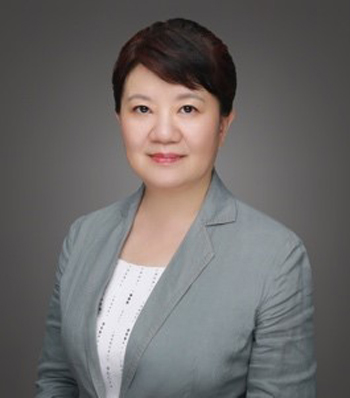
陈虹,同济大学长聘特聘教授,国家杰青,IEEE Fellow
Prof. Hong Chen, Tongji University, China, IEEE Fellow
陈虹,同济大学长聘特聘教授,IEEE Fellow,中国自动化学会会士,中国汽车工程学会会士,国家杰出青年科学基金获得者。曾任吉林大学汽车仿真与控制国家重点实验室主任,现任同济大学电子与信息工程学院院长,兼任中国自动化学会副理事长、车辆控制与智能化专业委员会主任委员等。浙江大学过程控制及自动化仪表专业获工学和工学硕士,德国斯图加特大学获工学博士。主要研究方向为模型预测控制、汽车控制与自动驾驶、人工智能与应用。
题目:面向汽车智能的实时预测控制
摘要:模型预测控制(MPC)因目标驱动、兼容数据-物理模型、主动遵守安全约束等特点,是实现安全高效智能的重要路径。MPC滚动优化原理被广泛应用于智能系统的优化决策与规划,以及运动控制,但核心瓶颈在于优化问题的在线实时求解。本报告将系统阐述MPC的预测-滚动优化基本原理、加速计算方法以及在汽车驾驶自动化中的应用。
Hong Chen is a distinguished professor of Tongji University, IEEE Fellow, CAA-China Fellow, and SAE-China Fellow. She currently serves as Dean of the College of Electronic and Information Engineering, and concurrently as CAA Vice President and TC-CVI Chair. She received the B.S. and M.S. degrees in process control from Zhejiang University in China respectively, and the Ph.D. degree in system dynamics and control engineering from the University of Stuttgart in Germany. She was a recipient of the National Science Fund for Distinguished Young Scholars, and served as the Director of the State Key Laboratory of Automotive Simulation and Control at Jilin University. Her current research interests include model predictive control, learning control and applications in mechatronic systems focusing on automotive systems and automated driving.
Title: Real-Time MPC for Automotive Intelligence
Abstract: Model Predictive Control (MPC), with its goal-oriented nature, compatibility with data-driven, physics-based and mixed models, and its proactive enforcement of safety constraints, has become a key pathway to achieving safe, efficient and intelligent systems. While the moving optimization implementation has been widely applied to decision-making, planning and motion control, however, the core bottleneck remains the online real-time solution of the underlying optimization problem. This talk will present the fundamental principle of MPC, highlight recent advances in computational acceleration, and discuss its transformative applications in automated driving.
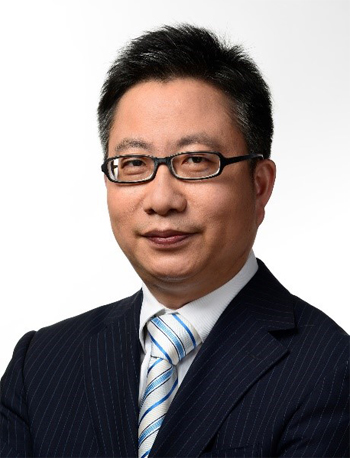
杨小康教授,上海交通大学,长江学者、国家杰青、IEEE Fellow
Prof. Xiaokang Yang, Shanghai Jiao Tong University, China, IEEE Fellow
杨小康,现任上海交通大学人工智能研究院教授、常务副院长,人工智能教育部重点实验室主任。1994年在厦门大学获理学学士学位。1997年在中科院上海技术物理所获工学硕士学位。2000年在上海交通大学获工学博士学位。2000-2004年在新加坡信息与通信研究院工作。2004年11月回上海交通大学任教至今,期间2007-2008年为德国弗莱堡大学计算机系洪堡学者。主要研究机器学习、计算机视觉、科学智能。主持国家自然科学基金委国家重大科研仪器研制项目、国家重点研发计划课题、上海市人工智能重大专项等项目10项。发表国际学术论文500余篇,引用39000余次,H-index 96,科睿唯安高被引科学家。获国家科技进步二等奖、上海市科技进步一等奖、中国电子学会自然科学一等奖等荣誉。入选长江学者、国家杰青、IEEE Fellow、中国人工智能学会会士(CAAI Fellow)。任中国图象图形学会常务理事、中国人工智能学会元宇宙技术专委会副主任、教育部人工智能科技创新专家组委员。
题目:智能化科学设施的思考与实践
摘要:本报告首先汇报智能化科学设施的思考,智能化科学设施旨在形成科学领域大模型、生成式模拟与反演、自主智能无人实验及大规模可信科研协作等创新功能,构筑数据闭环、模型闭环、操作闭环,加速重大科学发现、变革性物质合成,以及重大工程技术应用;然后,介绍上海交通大学在白玉兰科学大模型、自主无人合成科学平台等若干实践。
Xiaokang Yang is currently a distinguished professor of School of Computer Science, Shanghai Jiao Tong University, Shanghai, China. He received the B. S. degree from Xiamen University, Xiamen, China, in 1994, the M. S. degree from Chinese Academy of Sciences, Shanghai, China, in 1997, and the Ph.D. degree from Shanghai Jiao Tong University, Shanghai, China, in 2000. From September 2000 to March 2002, he worked as a Research Fellow in Centre for Signal Processing, Nanyang Technological University, Singapore. From April 2002 to October 2004, he was a Research Scientist in the Institute for Infocomm Research (I2R), Singapore. From August 2007 to July 2008, he visited the Institute for Computer Science, University of Freiburg, Germany, as an Alexander von Humboldt Research Fellow. He has published over 500 refereed papers, and has filed 60 patents. His current research interests include image processing and communication, computer vision, and machine learning. He received the 2018 Best Paper Award of IEEE Transactions on Multimedia. He was an Associate Editor of IEEE Transactions on Multimedia and Senior Associate Editor of IEEE Signal Processing Letters. He is an IEEE Fellow.
Title: AI-Enabled Scientific Facility: Concept and Practice
Abstract: This report first introduces the vision of intelligent scientific facilities, which aim to develop innovative capabilities such as large-scale models in scientific fields, generative simulation and inversion, autonomous intelligent unmanned experiments, and large-scale trustworthy research collaboration. These facilities are designed to establish closed-loop data, model, and operational processes, accelerating major scientific discoveries, transformative material synthesis, and significant engineering technology applications. Subsequently, it presents some of Shanghai Jiao Tong University's specific initiatives, including the Yulan Scientific Large Model and the Autonomous Unmanned Synthesis Science Platform.
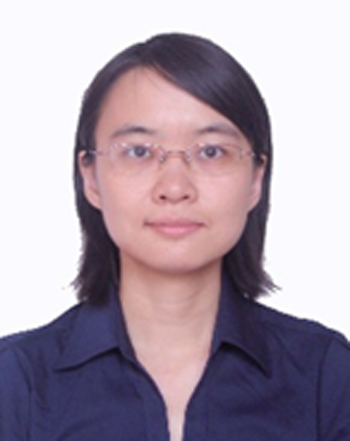
肖亮教授,厦门大学,IEEE Fellow
Prof. Liang Xiao, Xiamen University, China, IEEE Fellow
肖亮:厦门大学教授,入选国家级人才项目,IEEE Fellow,IEEE通信学会杰出讲师,爱思唯尔中国高被引学者。曾担任多个IEEE期刊的编委,包括IEEE TIFS、TCOM、TWC和TDSC等期刊的副编辑,以及IEEE STSP的特邀编辑。主要研究方向为无线安全,隐私保护和无线通信。出版3部英文专著,荣获2024年IEEE通信学会亚太区优秀论文奖,2017年IEEE ICC、2018年IEEE ICCS和2016年IEEE INFOCOM BigSecurity研讨会的最佳论文奖。
题目:面向无人驾驶的车辆协作感知抗数据篡改攻击
摘要:车联网协作感知技术赋能自动驾驶车辆分享点云、图片和行驶状态等感知数据,但在数据篡改攻击下可导致目标虚警和漏报等感知错误。本报告探讨基于强化学习的车辆协作感知方案,提高目标检测任务的感知精度和速度。该方案基于目标空间位置一致性、感知数据分辨率和车辆间信道增益等信息选择协作车辆,最大化感知精度、速度及数据传输最小时延需求加权和的效益函数。此外,介绍了感知数据空间一致性检验机制检测虚假数据,降低如目标位置漏报等感知错误。最后,构建车辆与攻击者之间博弈模型,基于该博弈模型的纳什均衡给出感知精度和速度的性能界,揭示扰动强度、数据量大小及感知数据分辨率对性能的影响机理。
Liang Xiao is an IEEE Fellow and a Professor in the Department of Informatics and Communication Engineering, Xiamen University. She has served in several editorial roles, including an associate editor of IEEE Transactions on Information Forensics & Security, IEEE Transactions on Communication, IEEE Transactions on Wireless Communication and IEEE Transactions on Dependable and Secure Computing, and Guest Editor of IEEE Journal on Selected Topics in Signal Processing. Her research interests include wireless security, privacy protection, and wireless communications. She published three books and three book chapters. She won 2024 IEEE ComSoc Asia-Pacific Outstanding Paper Award, as well as the best paper award for 2017 IEEE ICC, 2018 IEEE ICCS and 2016 IEEE INFOCOM Bigsecurity WS. She was 2022-2023 IEEE ComSoc Distinguished Lecturer.
Title: Collaborative Vehicular Perception for Autonomous Driving Against Data Fabrication Attacks
Abstract: Collaborative vehicular perception enables autonomous connected vehicle (CAV) to share the sensing data such as point clouds, images and driving status, which has performance degradation against data fabrication attacks that share faked sensing data to result in perception errors such as false alarms. In this report, we discuss reinforcement learning-based collaborative vehicular perception scheme to enhance perception accuracy and speed, which chooses collaborative CAVs to enhance the utility as the weighted sum of perception accuracy, speed, and the minimum latency requirement for data sharing. The spatial consistency check is presented to reduce perception errors such as the false positive rate of object locations. The upper performance bound of perception accuracy and speed is provided based on the Nash equilibrium of the game between CAVs and the attacker, revealing the impact of perturbation intensity, data size and point cloud resolution on the perception performance.
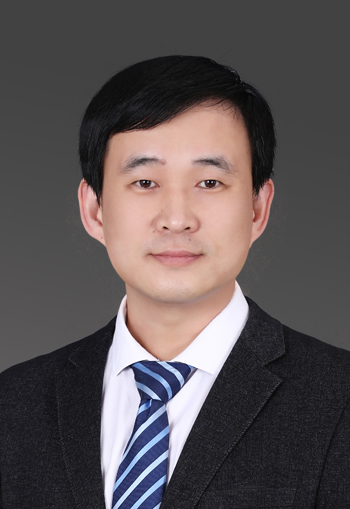
田大新教授,北京航空航天大学,长江学者,IEEE Fellow
Prof. Daxin Tian, Beihang University, China, Changjiang Scholar, IEEE Fellow
田大新:长江学者特聘教授,IEEE Fellow,北京航空航天大学科研院副院长兼前沿创新处处长,“科学探索奖”获得者,国家优青、青年长江、牛顿高级学者、中国工程院首届“中国工程前沿杰出青年学者”,担任中国指挥与控制学会无人系统专委会主任、中国电子学会智能交通信息工程分会副主任、中国计算机学会智能汽车分会副主任、车路协同与安全控制北京市重点实验室主任。发表学术论文100余篇,出版专著7本、教材2本、译著2本,授权发明专利51项;主持国家重点研发计划“揭榜挂帅”重点专项、国家自然基金重点项目等国家项目12项;获国家科技进步奖二等奖等科技奖15项,国家教学成果奖一等奖等教学奖5项。
题目:复杂环境下的全自动驾驶技术
摘要:自动驾驶的终极目标,是让AI系统真正代替人类,实现对复杂环境中驾驶任务的完全自主执行。不同于封闭、可控的任务环境,自动驾驶需持续应对动态、开放、强耦合的交通系统,对其泛化能力、交互理解与自主决策水平提出了更高要求。本报告聚焦车辆自主认知与决策智能,围绕知识获取、联想预判与持续进化三大核心能力,探索融合多模态认知、因果推理与生成学习的端到端自动驾驶系统架构。同时,报告将介绍在多源感知融合、自主决策控制与鲁棒轨迹生成等方面的最新技术进展,为实现面向复杂环境的高智能自动驾驶系统提供思路支撑与方法基础。
Daxin Tian is a distinguished professor and doctoral supervisor, a Changjiang Scholar, and an IEEE Fellow. He currently serves as the Deputy Director of the Research Institute and the Director of the Frontier Innovation Division at Beihang University (BUAA). He is also a recipient of the Scientific Exploration Award, the Excellent Young Scholars Fund from the National Natural Science Foundation, and the Newton Advanced Scholars Fund. Additionally, he has been honored as a Young Changjiang Scholar, an Outstanding Young Scholar in the Frontiers of Chinese Engineering by the Chinese Academy of Engineering. He holds the position of Director at the Beijing Key Laboratory of Vehicle-road Collaborative and Safety Control, as well as the Chairman of the Unmanned Systems Committee of the Chinese Society of Command and Control. Tian has led 12 national-level projects, including the "Challenge-oriented" project of the National Key R&D Program, key projects funded by the National Natural Science Foundation, and international cooperation projects, along with 4 provincial and ministerial-level projects. He has published over 100 academic papers, authored 11 books, and holds more than 50 patents for inventions. He has received 15 awards, including the Second Prize of the National Science and Technology Progress Award.
Title: Fully Autonomous Driving Technology in Complex Environments
Abstract: The ultimate goal of autonomous driving is to enable AI systems to completely replace human drivers in performing driving tasks within complex environments. Unlike closed and controllable task environments, autonomous driving must continuously adapt to dynamic, open-ended, and tightly coupled traffic systems, placing higher demands on generalization capabilities, interaction understanding, and autonomous decision-making levels. This report focuses on vehicle autonomous cognition and decision intelligence, exploring an end-to-end autonomous driving system architecture that integrates multi-modal cognition, causal reasoning, and generative learning, centered around three core capabilities: knowledge acquisition, associative prediction, and continuous evolution. Additionally, the report presents the latest technological advancements in multi-source perception fusion, autonomous decision control, and robust trajectory generation, providing conceptual support and methodological foundations for developing highly intelligent autonomous driving systems capable of operating in complex environments.
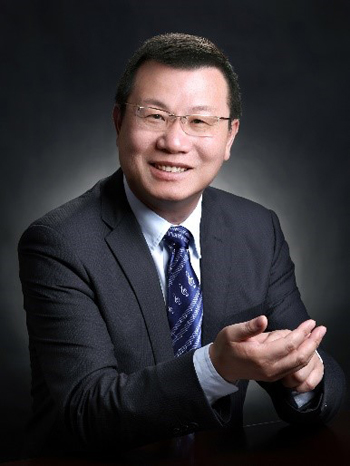
汪小帆教授,上海应用技术大学校长,长江学者,国家杰青
Prof. Xiaofan Wang, President of Shanghai Institute of Technology, China
汪小帆:1996年于东南大学获得博士学位。2002年开始在上海交通大学担任教授,曾任上海交通大学电子信息与电气工程学院副院长和致远学院常务副院长、上海大学副校长,现为上海应用技术大学校长。曾获国家杰出青年科学基金(2002),入选教育部长江学者特聘教授(2008)。曾获国家自然科学二等奖(2015)。现任国际自动控制联合会(IFAC)信息物理制造系统协调委员会副主席、中国系统工程学会副理事长等学术职务。主要研究领域为复杂动态网络分析与控制。
题目:具有执行器饱和的多智能体系统协同控制
摘要:多智能体系统协同控制理论为无人系统集群提供了理论基础,实际应用中往往存在的执行器饱和约束对集群的协同性能构成了挑战。本报告系统性地阐述我们多年来在具有执行器饱和约束的多智能体协同控制领域取得的研究成果。报告从三个关键维度构建分析框架与控制机制:对称与非对称饱和约束避免、半全局与全局饱和协同达成、同质与异质饱和处理。这些研究旨在为克服执行器饱和带来的限制、实现高性能无人集群协同提供理论和方法指导。
Xiaofan Wang received the Ph.D. degree from Southeast University, China in 1996. He has been a Professor with Shanghai Jiao Tong University (SJTU) since 2002 and a Distinguished Professor of SJTU since 2008. He was the vice-president of Shanghai University, and is now the president of Shanghai Institute of Technology, China. He received the 2002 National Science Foundation for Distinguished Young Scholars of P. R. China, the 2008 Distinguished Professor of the Chang Jiang Scholars Program, Ministry of Education, and the 2015 Second Class Prize of the State Natural Science Award, China. He is currently vice-chair of IFAC Coordinating Committee CC5, and vice-chair of Systems Engineering Society of China. His current research interests include analysis and control of complex dynamical networks.
Title: Cooperative Control of Multi-Agent Systems with Actuator Saturation
Abstract: The advancement of cooperative control theory for multi-agent systems has established a theoretical foundation for unmanned system swarms. However, inherent physical constraints frequently induce actuator saturation in practical implementations, presenting a barrier to transitioning cooperative control from theory to practice. This report systematically presents our years of research achievements in the field of multi-agent cooperative control subject to actuator saturation constraints. The presentation will construct analytical frameworks and control mechanisms from three critical dimensions: mitigation of symmetric and asymmetric saturation constraints, achievement of semi-global and global saturated coordination, and treatment of homogeneous and heterogeneous saturation. The research outcomes provide theoretical and methodological guidance for overcoming limitations induced by actuator saturation and enabling high-performance cooperative control of unmanned system swarms.
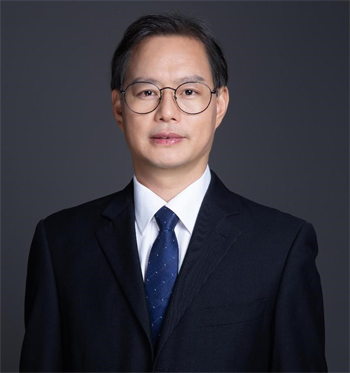
陈谋教授,南京航空航天大学,国家杰青
Prof. Mou Chen, Nanjing University of Aeronautics and Astronautics, China
陈谋,博士,教授、博士生导师,IET Fellow,中国自动化学会会士,享受国务院政府津贴。2018年国家自然科学基金杰出青年基金获得者、2019年国家“百千万”人才工程入选者。先后在南京航空航天大学获学士与博士学位,并先后在英国拉夫堡大学、新加坡国立大学和澳大利亚阿德莱德大学做访问或博士后研究。目前担任SCI收录英文期刊《IEEE Trans. Cybernetic》、《IEEE Trans. Circuits and Systems II: Express Briefs》等编委、担任《中国科学.信息科学》、《自动化学报》、《控制理论与应用》、《航空学报》等编委等。同时担任教育部高等学校教学指导委员会兵器类委员、中国人工智能学会智能空天专业委员会副主任委员、中国指挥与控制学会群集智能与协同控制专业委员会副主任委员、自动化学会信息物理系统控制与决策专业委员会副主任等。先后获国家自然科学二等奖1项(排名第二)、江苏省科学技术奖一等奖1项(排名第一)、江苏省青年杰出贡献奖、国防科技进步二等奖2项(排名第一),申请授权发明专利40余项。出版中英文专著3部,发表学术论文200余篇。
题目:复杂低空环境下飞行器集群安全控制关键技
摘要:低空经济是新质生产力的代表性产业,而低空飞行器是低空复杂环境下飞行的主要载体,也是低空经济的支柱产业。随着低空经济的快速发展,亟需发展低空复杂环境下的集群飞行控制,但飞行器集群低空空域安全高效运行面临众多挑战。本报告主要介绍低空飞行器集群控制与安全研究意义及必要性,低空集群飞行已有成果和低空控制未来展望等三个方面。
Prof. Mou Chen, an IET Fellow and a CAA Fellow, serves as the Dean of the College of Automation Engineering at Nanjing University of Aeronautics and Astronautics. He was the recipient of the National Science Fund for Distinguished Young Scholars in 2018, was selected into the National “Hundred-Thousand-Ten Thousand Talents Project” in 2019, and was included in the “New Century Excellent Talents Support Program” of the Ministry of Education in 2011. Currently, he serves as an editorial board member of several SCI-indexed English journals, such as IEEE Trans. Cybernetic、IEEE/ASME Trans. Mechatronics、IEEE Trans. CS II: Express Briefs, etc., and also serves as an editorial board member of Chinese journals including Science China: Information Sciences, Acta Aeronautica et Astronautica Sinica, Acta Automatica Sinica, Control Theory & Applications, etc. He has successively won the Second Prize of the National Natural Science Award (ranked second), the First Prize of the Jiangsu Provincial Science and Technology Award (ranked first), the First Jiangsu Provincial Outstanding Contribution Award for Young Scientists and Technologists, the First Prize of the Natural Science Award of the Ministry of Education (ranked second), and 2 Second Prizes of the National Defense Science and Technology Progress Award (ranked first). He has applied for and been authorized more than 30 invention patents. He has published 3 monographs in Chinese and English and has published more than 200 academic papers.
Title: Key Technologies for Safe Control of Aircraft Swarms in Complex Low-Altitude Environments
Abstract: The low-altitude economy is a representative industry of new productive forces, and low-altitude aircraft, as the main carriers for flight in complex low-altitude environments, are also the pillar industry of the low-altitude economy. With the rapid development of the low-altitude economy, there is an urgent need to develop swarm flight control in complex low- ltitude environments. However, the safe and efficient operation of aircraft swarms in low-altitude airspace faces numerous challenges. This report mainly covers three aspects: the research significance and necessity of low-altitude aircraft swarm control and safety, the existing achievements in low-altitude swarm flight, and the future prospects of low-altitude control.
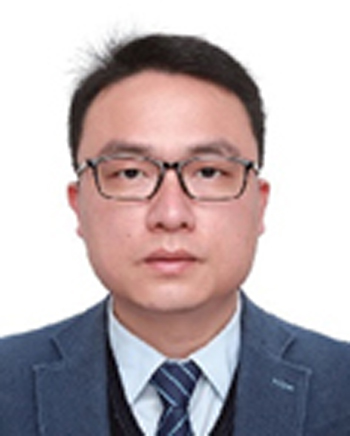
温广辉教授,东南大学,国家杰青
Prof. Guanghui Wen, Southeast University, China
温广辉,二级教授、东南大学首席教授、博士生导师、东南大学自动化学院副院长,IET Fellow,江苏国家应用数学中心副主任,江苏省信息数学应用中心常务副主任(主持工作)。长期从事分布式控制理论与控制工程、网络群体智能理论与技术领域的科学研究与工程应用开发工作。在Nature子刊、Research、The Innovation和IEEE汇刊发表学术论文200余篇,出版学术专著4部,SCI他人引用过万次,获国际学术期刊最佳论文奖1次、国内外学术会议最佳论文奖7次。主持国家杰青项目,国家优青项目,国家自然基金联合重点项目、科技部重点研发计划项目课题等30余项科研项目;申请国家发明专利80余项,授权54项;授权国际PCT专利1项(美国发明专利)。担任IEEE/ASME Trans. Mechatronics, IEEE Trans. Industrial Informatics, IEEE Trans. Neural Networks and Learning Systems, IEEE Trans. Intelligent Vehicles, IEEE J. Emerging and Selected Topics in Industrial Electronics, IEEE Trans. Systems, Man, and Cybernetics: Systems, IET Control Theory and Applications, 和Asian J. Control编委。获Asian J. Control首届杰出编委奖。任中国指挥与控制学会副秘书长,中国自动化学会大数据专委会副主任,中国指挥与控制学会青年工作委员会副主任。获第十八届中国青年科技奖,国家一级学会技术发明一等奖、科技进步一等奖各1项(排1),省部级奖项4项,日内瓦国际发明展金奖1项,ARC DECRA Fellow,亚太神经网络学会青年杰出研究奖,中国指挥与控制学会青年科学家奖、创新奖一等奖等学术荣誉。2018年至今持续入选科睿唯安全球高被引学者榜单(工程领域)。
题目:无人集群装备系统分布式群智决策与控制
摘要:从系统与控制学科领域来看, 无人集群装备是指由多个自主装备单元以信息通信等方式耦合而成的集群系统。通过将无人集群装备建模为多智能体系统模型,并结合分布式优化、网络博弈与协同控制等群智技术,能够为无人装备集群提供高效、精准的指挥与控制决策,从而显著提升其作战效能。本报告围绕无人集群装备分布式群智决策与控制中的关键问题,梳理了分布式群智快速最优决策与控制、分布式群智动态博弈决策与控制的核心技术。首先,针对复杂动态环境下无人集群装备的快速优化决策与控制问题,研究了多约束条件下的快速最优决策方法、网络攻击情境下的分布式可信优化决策机制,以及耦合动力学特性的决策与控制一体化策略,并展示了这些方法在无人艇集群协同感知与定位中的应用潜力。其次,探讨了强对抗环境下分布式群体智能博弈决策的最新理论进展与实际应用,深入研究了动态拓扑结构下的分布式博弈决策和快速分布式博弈决策技术。此外,将博弈论思想引入集群装备的协同控制中,分析了决策与控制之间的耦合影响,提出了集群装备群体智能博弈决策与控制的一体化方法,并成功应用于水面无人艇集群的编队护航任务。最后,展望了集群装备分布式群体智能决策与控制的未来研究方向与发展趋势。
Guanghui Wen is an Endowed Chair Professor and the Vice Dean of the School of Automation, Southeast University, Nanjing, China, Deputy Director of Jiangsu National Applied Mathematics Center, and Executive Deputy Director (Acting Director) of Jiangsu Provincial Information Mathematics Application Center. His research focuses on distributed control theory and engineering, swarm intelligence theory and technologies, with over 200 papers published in Nature Reviews Electrical Engineering, Research, The Innovation, and IEEE Transactions, four academic monographs, and over 10,000 SCI citations. He has received one international journal Best Paper Award and four conference Best Paper Awards. He has led over 30 research projects, including the National Distinguished/Excellent Young Scholars Programs, Key Joint Projects of the National Natural Science Foundation of China, and sub-projects of the National Key R&D Program of China, and holds 70+ Chinese invention patents (57 granted) and one international PCT patent (U.S. invention patent). He currently serves as a Technical Editor of the IEEE/ASME Trans. Mechatronics and an Associate Editor of the IEEE Trans. Control of Network Systems, the IEEE Trans. Industrial Informatics, the IEEE Trans. Neural Networks and Learning Systems, the IEEE Trans. Intelligent Vehicles, the IEEE Trans. Fuzzy Systems, the IEEE Trans. Systems, Man and Cybernetics: Systems, the IEEE J. Emerging and Selected Topics in Industrial Electronics, the IEEE Open J. Industrial Electronics Society, and the Asian Journal of Control, while holding leadership roles as Deputy Secretary-General of the Chinese Association of Command and Control, Vice Chair of its Youth Working Committee, and Vice Chair of the Big Data Technical Committee of the Chinese Association of Automation. His honors include the 18th China Youth Science and Technology Award, First Prize of Science and Technology Award from a national first-level society (ranked 1st), Gold Medal at the Geneva International Exhibition of Inventions, ARC DECRA Fellow, Outstanding Young Researcher Award from the Asia-Pacific Neural Network Society, Youth Scientist Award, and Innovation First Prize from the Chinese Association of Command and Control. He has been continuously recognized as a Clarivate Highly Cited Researcher (Engineering) since 2018. He is an IET Fellow.
Title: Distributed Swarm Intelligence for Decision-Making and Control in Unmanned Swarm Equipment Systems
Abstract: Unmanned swarm equipment systems refer to clustered systems composed of multiple autonomous units coupled via communication networks. Modeled as multi-agent systems and integrated with distributed optimization, network game theory, and cooperative control, these systems enable efficient and precise decision-making, significantly improving operational effectiveness. This report addresses key issues in distributed swarm intelligence for unmanned swarms, covering rapid optimal decision-making under constraints and adversarial game-theoretic decision-making. It explores trusted optimization under cyber attacks, integrated decision-control strategies, and applications in unmanned surface vessel clusters for collaborative perception and formation escort missions. Future research directions are also outlined.



